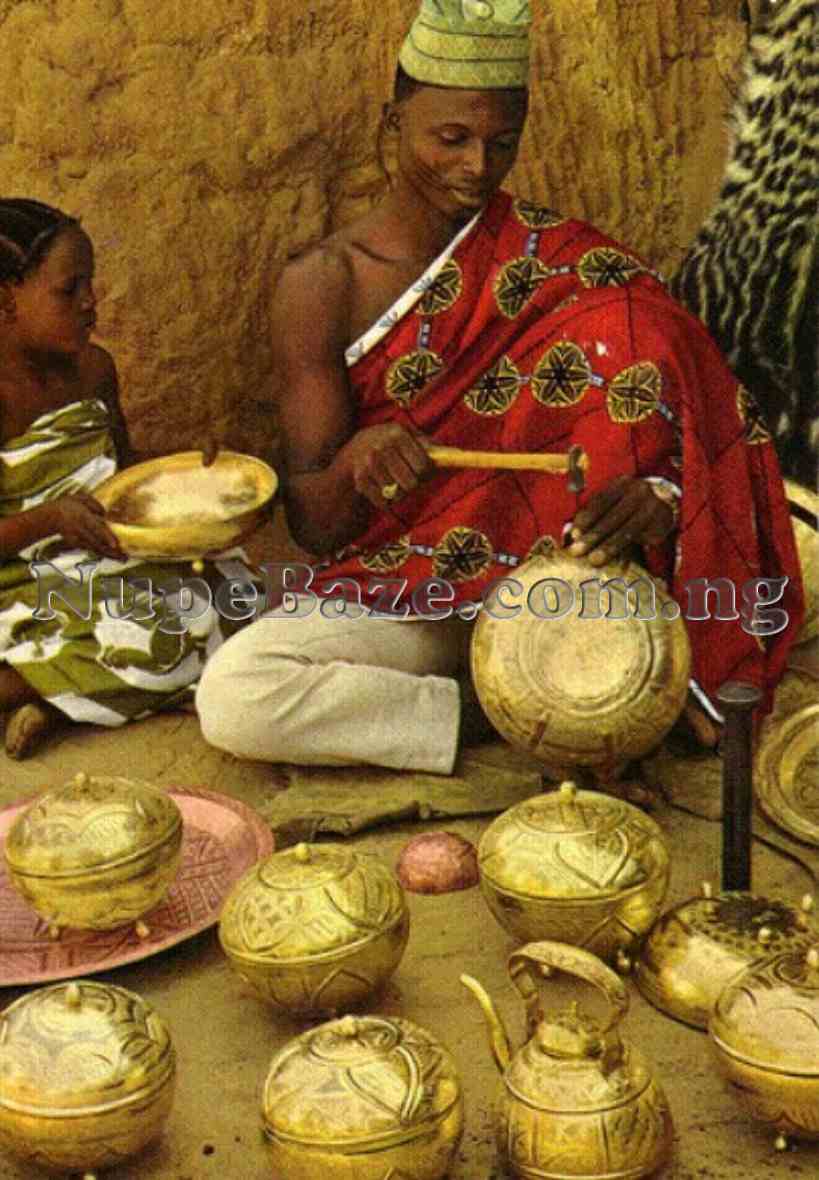The town of Bida, Niger state, north-central Nigeria is not new to ancient crafts.
Bida is noted for unique Arts dating back hundreds of years.
 Bida villagers engaged in steel making, black smiting and glass making long before white men set foot on the shores of West-Africa. As a matter of fact, early bead-making in Africa has been traced to Egypt and Nigeria. Nupe tribesmen from Bidaremain at the forefront of Nigeria’s glass bead makers.
Bida villagers engaged in steel making, black smiting and glass making long before white men set foot on the shores of West-Africa. As a matter of fact, early bead-making in Africa has been traced to Egypt and Nigeria. Nupe tribesmen from Bidaremain at the forefront of Nigeria’s glass bead makers.
In villages, across Bida, tribesmen produce record amounts of glass materials– making beads and glass bottles every year. Could Bida ancient glass making craft provide intimate glimpses to what is possible in Nigeria’s local craft industry?
The uniqueness of these glass beads has turned Bida town into a tourist destination, a house-keeper of one of Africa’s finest ancient crafts. Many villagers have become custodians of their crafts; and the myth surrounding the production of such glass beads has added a sort of mystery to the bead making process.
For instance, as a rule, it is believed that Bida bead makers do not allow family members and foreigners they train establish business outside their community.
Some of the consequences for defaulting this ‘rule’ include failure in business, sickness and other distasteful happenings till the trainee return to Bida town. A myth you would say, but I haven’t encountered anyone who has experienced it.
Bida people are specialist in glass making. Even before the advent of modern technology, they were producing their own glass bottles. These bottles are referred to as ‘bikini’ in their native Nupe language and they come in different shapes and sizes. You could even select the bottle colour you want. To produce glass beads, a special domed furnace is built.And into a pit underneath sand, soda and the blacksmith slag are added. The furnace is heated to a high temperature for 3 to 5 days, depending on the quantity of glass being made.
After heating, a large gather of glass is withdrawn from the furnace and put into a mandrel. The glass is then shaped into beads with the aid of a paddle and decorations added. The beads are then removed from the mandrel and allowed to cool slowly in pot adjacent to the furnace.
Ancient glass making technology contributes to the cultural identity of the Nupe tribe, and will continue to have significant commercial value in today’s Nigeria.
In this African Craft series, we’ve got the low-down on the transformative story of one of Nigeria’s local craft industry, along with all the local tips and strategies.
If you’ve got a story that you think worthmax should spotlight, Click
to Contact the Admin of WorthMax on Facebook.
ALSO SEE:
